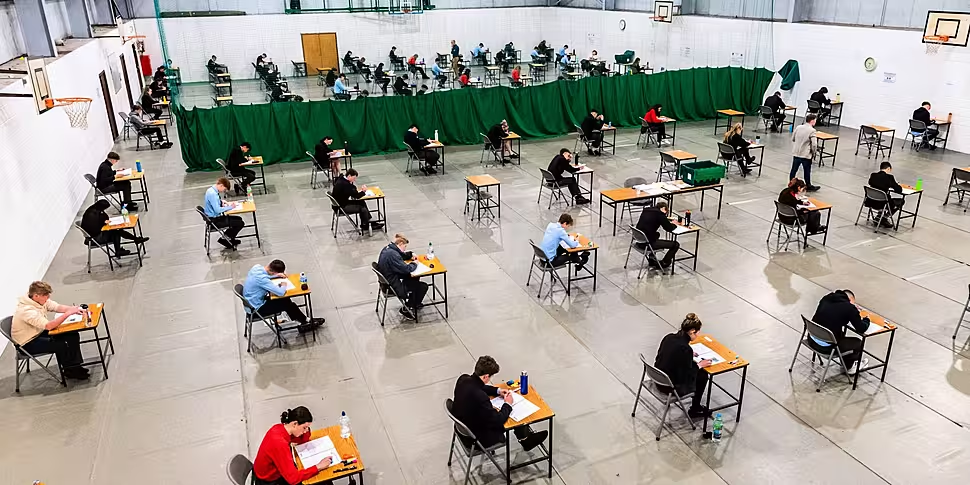Acknowledging stress, taking time out and actually reading the exam questions are the best ways teenagers – and parents – can get through the Leaving Cert.
Leaving Certificate exams are due to begin on June 7 with maths, but students are already out of the classroom and preparing for exams.
Author of Less Stress, More Success: Maths Brendan Gildea told The Pat Kenny Show these two weeks can be the most difficult for Leaving Cert students.
“The whole thing with social media, they’re spending hours and hours on that,” he said. “That’s a big thing for students and parents to be very aware of.”
“It's really important that they just keep ticking over lightly and they don't take the foot off the accelerator,” he said.
"Read the question"
Mr Gildea’s annual advice is simple: read the questions properly.
“It’s corny advice, but you couldn’t give better advice than ‘read the question’,” he said.
Parents should also talk to their children about having a “time budget” in advance of every exam and sticking to it.
“It’s really critical you get through all the pieces,” Mr Gildea explained. “Do the shorter questions first... section A [in maths] is five short questions, and then you have move to section B, which is the long questions where you get bored.”
Anxiety
Clinical psychologist Dr Claire Hayes said there is nothing wrong with students and parents experiencing anxiety in the build-up to exams.
“Acknowledging that it is a difficult time path is really important, and not expecting people to feel wonderful,” she said. “This is hard. This is a slog.”
 A stressed school pupil with his head in his hands sat at his desk // WH8BB3
A stressed school pupil with his head in his hands sat at his desk // WH8BB3The author of Choose Well: The ABC Coping Sentence said parents and teenagers may give each other more anxiety during exams, but parents should focus on helping their children through.
Something as simple as a breathing exercise while exams papers are being distributed can help students get into the right mindset during the Leaving Cert.
The 'ABC' steps
Dr Hayes also recommended the three ‘ABC’ steps to cope with stress.
“A is ‘acknowledging’ - ‘I feel stressed, I feel upset’,” she explained. “B is ‘because’ - ‘because I think I won’t do well, because I think I might not get the place [in college]’.”
Dr Hayes said parents should make sure students don’t deny their anxieties and support them instead.
“C is ‘choose’,” she said. “‘I choose to give myself every chance, I choose to let my anxiety help me’ - because anxiety is really important.”
“A lot of top athletes and musicians really rely on their anxiety, pre performances to go in and do well – so I’d be more worried about a student who's 100% laid back.”









